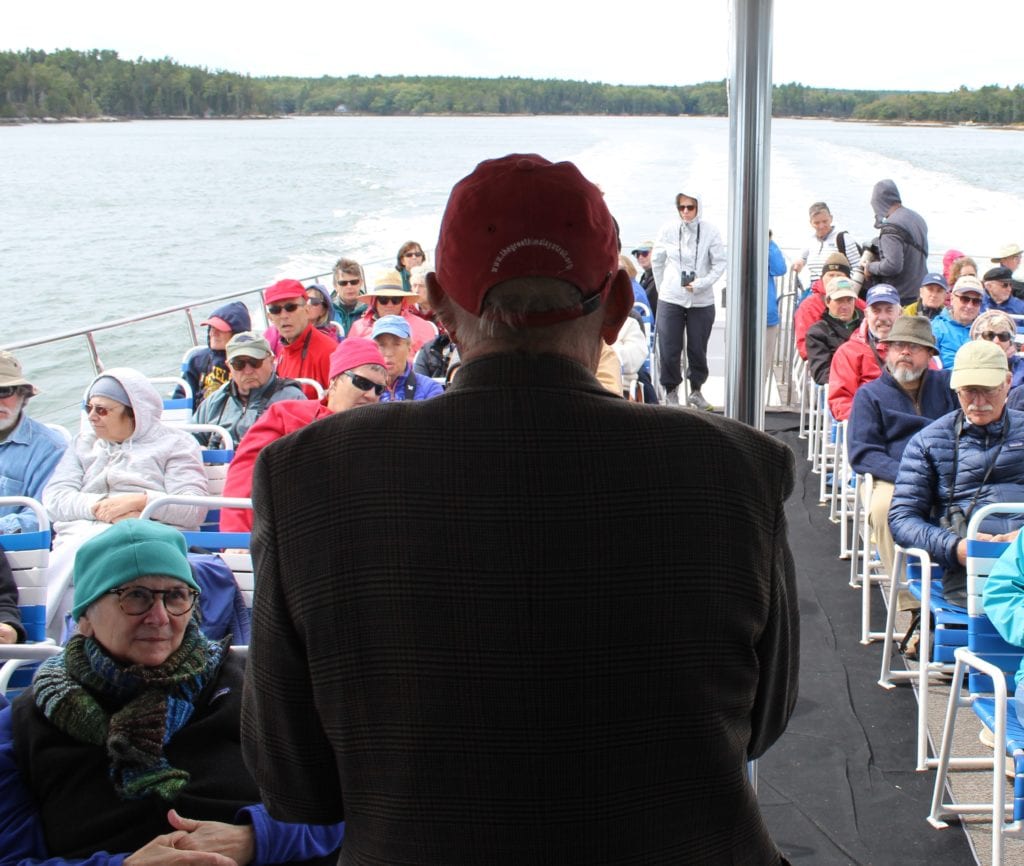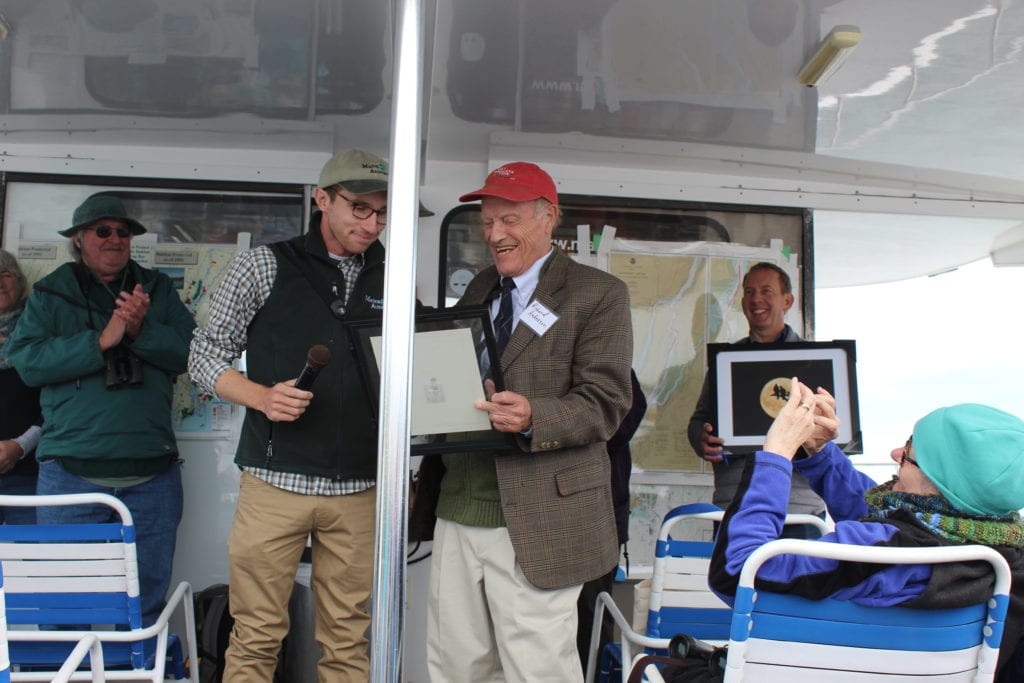
Last weekend, we set sail on the 50th anniversary voyage of our Bald Eagles of Merrymeeting Bay boat trip (it was an incredible day — you can read about it in Nick’s excellent write-up).
We saw 47 Bald Eagles, which is a thrill in and of itself…but the highlight of the day was having an opportunity to honor Dick Anderson, who led the very first of these trips in 1969. Dick remembers when it was a thrill to see ONE Bald Eagle.
The recovery of the Bald Eagle is a testament to the success of the Endangered Species Act, as well as to the dedication of a lot of people who worked incredibly hard to make it happen. To recognize the critical role Dick and Maine Audubon played, Rep. Chellie Pingree shared a congressional proclamation with us, which we framed and presented to Dick on the boat.

It was a wonderful moment. You can download the proclamation here (PDF), and the text is below. Thank you to Rep. Pingree for recognizing Dick and the importance of this trip in the conservation of this iconic species!
IN ITS 50TH YEAR, ANNUAL MAINE BALD EAGLE TRIP HIGHLIGHTS COMEBACK OF
AMERICAN ICON
______
HON. CHELLIE PINGREE
of maine
in the house of representatives
Tuesday, September 25, 2018
Ms. PINGREE. Mr. Speaker, I rise today to recognize the 50th running
of an important annual event in my state that highlights the comeback
of an American icon.
In 1969, Dick Anderson led his first trip for Maine Audubon to try to
spot bald eagles in Maine's Merrymeeting Bay. At the time, it was the
last accessible place in the entire state to see a nesting pair--a
result of the terrible toll the pesticide DDT had taken on the nation's
bald eagle population, which had dwindled to just over 400 pairs in the
continental U.S. in the 1960s.
Anderson continued to bring people to Merrymeeting Bay annually. In
the early years, they were lucky to see one or two eagles. But as a
national ban on DDT, the Endangered Species Act, and other
environmental laws did their work, these trips yielded more birds every
year. As Maine Audubon continues the annual tradition--holding its 50th
cruise this month--participants can now expect to see at least 50 bald
eagles.
What a sight it is to see these great birds soar high in the air,
dive to snatch a fish from the water, or perch upon their massive
nests. It's astonishing to think how close we came to losing this
living symbol of our nation. This species' recovery from the brink of
extinction is an amazing success story for federal environmental
protections.
But this story is not yet over. I'm afraid a new chapter is now being
written as efforts are underway, both in Congress and under the current
Administration, to weaken the Endangered Species Act and other
protections. Now is not the time to undo the progress we have made. In
fact, with climate change and other environmental threats before us, we
need these laws more than ever--not just for bald eagles, but also for
the hundreds of wildlife species that remain on the threatened and
endangered lists.
Again, I congratulate Maine Audubon on its 50th eagle trip and
commend Dick Anderson and other conservation leaders for protecting the
incredible natural resources in my state. I hope these trips continue
to see more and more bald eagles every year--because that would mean we
are still doing our job in Washington to responsibly steward the lands,
waters, and wildlife that are in our trust.
